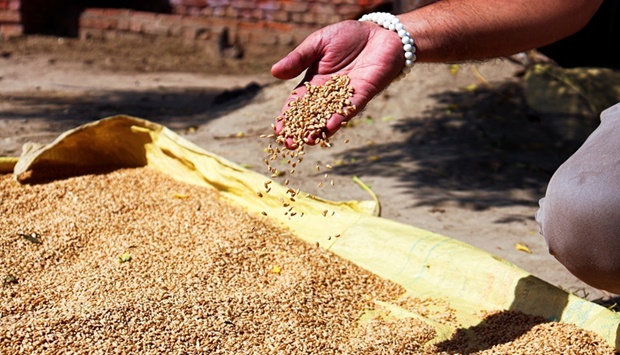The Indian government is considering restricting wheat exports as severe heat waves have damaged crops, exacerbating tight global supplies after the war in Ukraine sent food inflation soaring.
The South Asian nation experienced its hottest March on record, shrivelling the wheat crop that the world was relying on to alleviate a global shortage. To safeguard domestic supplies, the government is considering limiting wheat exports, according to a person with knowledge of the matter.
Top officials are discussing the move and will recommend it to Prime Minister Narendra Modi, who will then make the decision, said the person, who asked not to be identified as the information is private.
An agriculture ministry spokesperson wasn’t immediately available to comment. A finance ministry spokesperson didn’t answer calls, while the trade ministry didn’t immediately respond to an e-mail seeking comment. Benchmark wheat futures jumped almost 4% in Chicago. Curbing exports would be a hit to India’s ambition to cash in on the rally in global wheat prices after Russia’s war in Ukraine upended trade flows out of the critical Black Sea breadbasket region. Importing nations have looked to India for supplies, with top buyer Egypt recently approving the South Asian nation as an origin for wheat imports.
The move would also add to a wave of crop protectionism around the world as governments seek to protect their own food supply amid soaring prices and fears of shortages. That has the potential to worsen global food inflation, which is already at a record and surging at a rampant pace.
One of the strategies, the person said, could be setting a minimum export price so wheat cannot be shipped overseas below this level. This way, without outrightly banning it, the government can boost domestic supply and keep a check on prices, according to the person.
The food ministry yesterday slashed its estimate of India’s wheat output this season to 105mn tonnes. That’s down from a record 111mn tons forecast previously and 109.6mn tonnes produced a year earlier.
There’s no need to curb exports for now as the country has enough supply to meet domestic demand, food secretary Sudhanshu Pandey said at a briefing.
The fall in production is raising concerns for the domestic market, with millions depending on farming as their main livelihood and food source. Weaker output will hurt farmers’ incomes. The government also buys wheat for its welfare programme, which provides subsidised food to two-thirds of the population.

(Representative photo) (Image:Pixabay)
